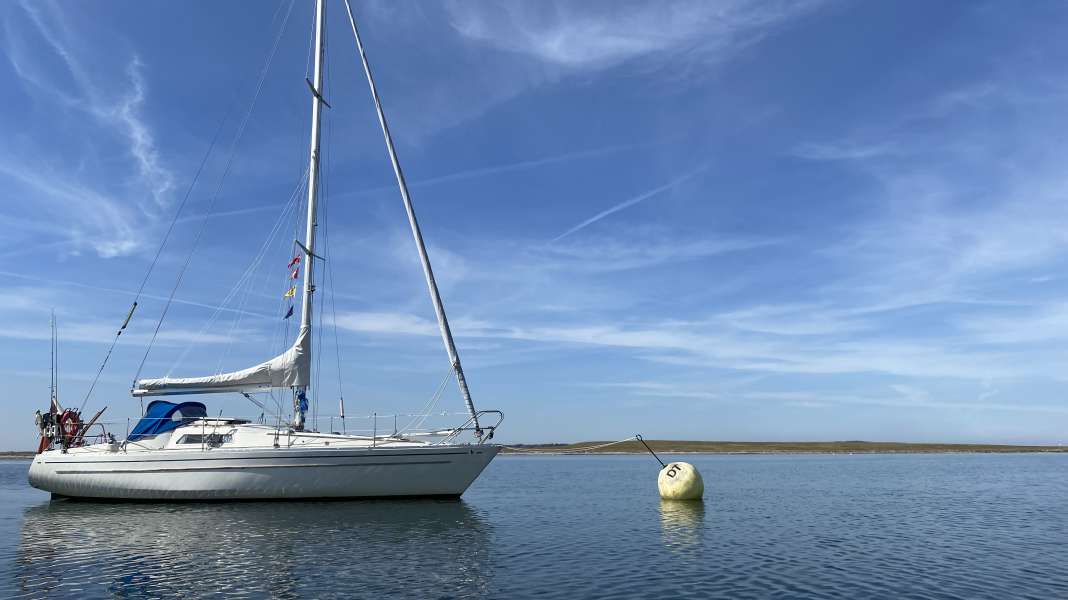
Until now, the Danish mooring buoy system has been prone to confusion. Of the 300 buoys, 150 are managed by Dansk Sejlunion (DS) and 150 by Danske Tursejlere (DT). As a paying club member of one of the two organisations, all buoys can be used free of charge. German sailors can also register with Danske Tursejlere to access the entire network. However, until now, the 150 DT-marked mooring buoys could also be used free of charge by all sailors without any club membership.
All 300 mooring buoys can be used as a member
Got it? Never mind, because from now on the same rights apply to everyone. From now on, German sailors can only moor at all 300 mooring buoys (DS and DT) as paying members of Danske Tursejlere. Sune Abelgren Olsen (DT): "The maintenance of the buoys is largely financed by our members through their membership fees. That's why we think it's only fair that everyone who wants to use the buoys also contributes to securing the financial basis for this. This is the best way to ensure that there will continue to be many buoys with a high level of safety in the future." Membership currently costs 265 Danish kroner (35.50 euros).
Good news for winter sailors
For the first time, the mooring buoys will not be retrieved at the end of the season, but will remain in place throughout the winter. The reason given is the increasing number of boats that remain in the water throughout the winter. Whether for economic reasons or for the sheer pleasure of sailing out of season - this is good news for all winter sailors and fans of the yellow buoys.
Further benefits: With the app to the Muring buoy
In the "Blå Oplevelser" app, there is a map with all the buoys laid out and the exact coordinates. Tourist information on the respective area can also be obtained via a link, but only in Danish. An online translator can help with this. In addition to a pennant that makes membership visible on the water, every member also receives a club magazine four times a year - also in Danish.
Terms of use of the mooring buoys in Denmark
The Danish buoys may be occupied for a maximum of 24 hours and the load may not exceed 15 tonnes. Several small boats can moor to one buoy as long as the maximum load is not exceeded. However, the operators are not liable for damage, even if the regulations are observed. The Danish buoys are normally located in a water depth of 2.5 to 3 metres, so it is officially advised not to use them in onshore winds and possible grounding.
Further articles on the topics of mooring buoys and anchoring:
- Practice: How to moor safely to a mooring buoy
- Anchoring: The solid basic equipment for dropping the hook with peace of mind
- Anchor special: Better anchoring, episode 1: Chain or line, how long?
- Anchor special: Better anchoring, episode 2: 6 tips for the ideal anchorage
- Anchoring special: Better anchoring, episode 3: safely run in the ground anchor - 9 manoeuvres
- Anchoring: More peace and security with the radio buoy?

Morten Strauch
Editor News & Panorama
